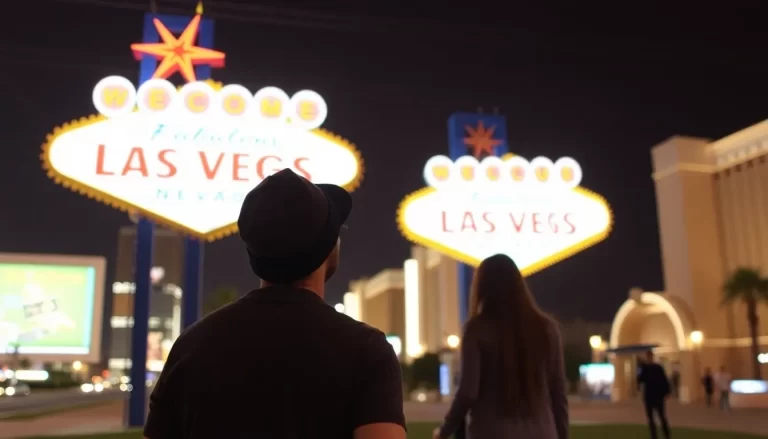Travel is more than just a leisure activity; it’s a way to connect with different cultures, share experiences, and foster understanding among people from diverse backgrounds. However, as global citizens, we sometimes feel compelled to express our discontent with certain governmental policies or societal issues through travel boycotts. While these actions appear noble on the surface, they may not yield the intended results. Let’s delve deeper into the implications of travel boycotts and explore more effective ways to enact change.
Understanding the Impact of Travel Boycotts
Travel boycotts have gained traction as a form of protest against government actions, particularly in states or countries where policies conflict with personal beliefs. For instance, past boycotts against Mississippi and North Carolina’s anti-LGBT laws prompted widespread declarations of non-visitations from tourists, bloggers, and celebrities. This scenario is reminiscent of other historical boycotts, such as those against Myanmar during its military junta, the United States under George W. Bush, and Cuba during Fidel Castro’s regime.
While the intention behind such boycotts is often to promote social justice, they may inadvertently target the wrong individuals. The real question is: **Do travel boycotts truly effect change or merely create additional hardships for innocent locals?**
Who Really Suffers from Boycotts?
Governments often take a long time to change, if they change at all, and the individuals affected by these boycotts are typically not the policymakers. Boycotts can have unintended consequences, punishing local businesses and communities that do not support the oppressive laws in question. These establishments rely on tourism for their livelihoods and may suffer severe financial consequences as a result of boycotts.
- Boycotts can lead to reduced income for local workers.
- Tourist-dependent businesses may face closures, impacting the local economy.
- People advocating for change within their communities may be discouraged by the lack of support.
For example, a bookstore in North Carolina, which was affected by the backlash against the state’s laws, found itself struggling to stay afloat as authors canceled events. **This is collateral damage for a situation they don’t support.** By boycotting travel to these areas, we inadvertently harm those who are already aligned with our values.
Are Travel Boycotts Effective?
Examining historical precedents reveals that significant governmental changes often stem from large-scale economic sanctions or nationwide activism, not individual choices about travel. For instance:
- South Africa’s apartheid regime fell primarily due to international sanctions and pressure from large corporations, not from a decrease in tourism alone.
- Indiana softened its anti-LGBT laws following pressures from corporations and major events withdrawing their support, rather than from boycotts by individual travelers.
- Iran’s government made concessions only after facing severe economic sanctions that brought the country to the brink of crisis.
**Travel boycotts, while well-intentioned, rarely lead to governmental change.** They often fail to pressure those in power who are more concerned with economic gains than public sentiment. The reality is that governments respond to financial pressures, not simply the absence of tourists.
Travel as a Catalyst for Change
Rather than withdrawing from destinations, engaging with them can foster understanding and facilitate change. Travel has the power to connect people and ideas across cultural divides. When individuals visit places, they often bring new perspectives and insights that can inspire change. **Human interaction can be a powerful tool for transformation.**
Consider the impact of cultural exchange:
- Travelers can share progressive ideas and practices that may influence local thought.
- By spending money in local economies, travelers can help sustain businesses and communities.
- Interactions with visitors can promote dialogue and understanding, breaking down stereotypes and prejudices.
As Maya Angelou famously stated, “**Perhaps travel cannot prevent bigotry, but by demonstrating that all peoples cry, laugh, eat, worry, and die, it can introduce the idea that if we try and understand each other, we may even become friends.**” This sentiment encapsulates the essence of why engaging with the world is more beneficial than retreating into isolation.
How to Advocate for Change Effectively
If individuals feel compelled to take a stand against oppressive policies, there are more effective avenues than boycotting travel. Here are some proactive approaches:
- **Lobby Local Businesses**: Encourage local businesses to take a stand on social issues and support those that align with your values.
- **Engage Politically**: Advocate for change within your own government by lobbying representatives or participating in peaceful protests.
- **Support Organizations**: Contribute to non-profits or grassroots organizations that actively work to promote social justice in affected regions.
- **Educate Yourself and Others**: Share knowledge about the countries you wish to visit and the issues they face, fostering informed discussions.
**Taking positive action can lead to more significant and lasting changes than mere boycotts.** By investing time, resources, and energy into constructive efforts, individuals can make a real difference in the lives of others.
The Bigger Picture of Travel
Travel is not merely about visiting new places; it’s an opportunity to build bridges across cultures. While it’s crucial to stand against injustices, it’s equally important to remember that those injustices often do not represent the will of the people living within those countries. **Boycotting travel can inadvertently cut off vital support to those who may need it most.**
In conclusion, while boycotts may seem like a straightforward way to express discontent, they often fail to effect real change. Instead, by traveling and engaging with different cultures, we can promote understanding, foster dialogue, and support local economies. This approach not only enriches our own lives but can also lead to meaningful progress in the world around us.







